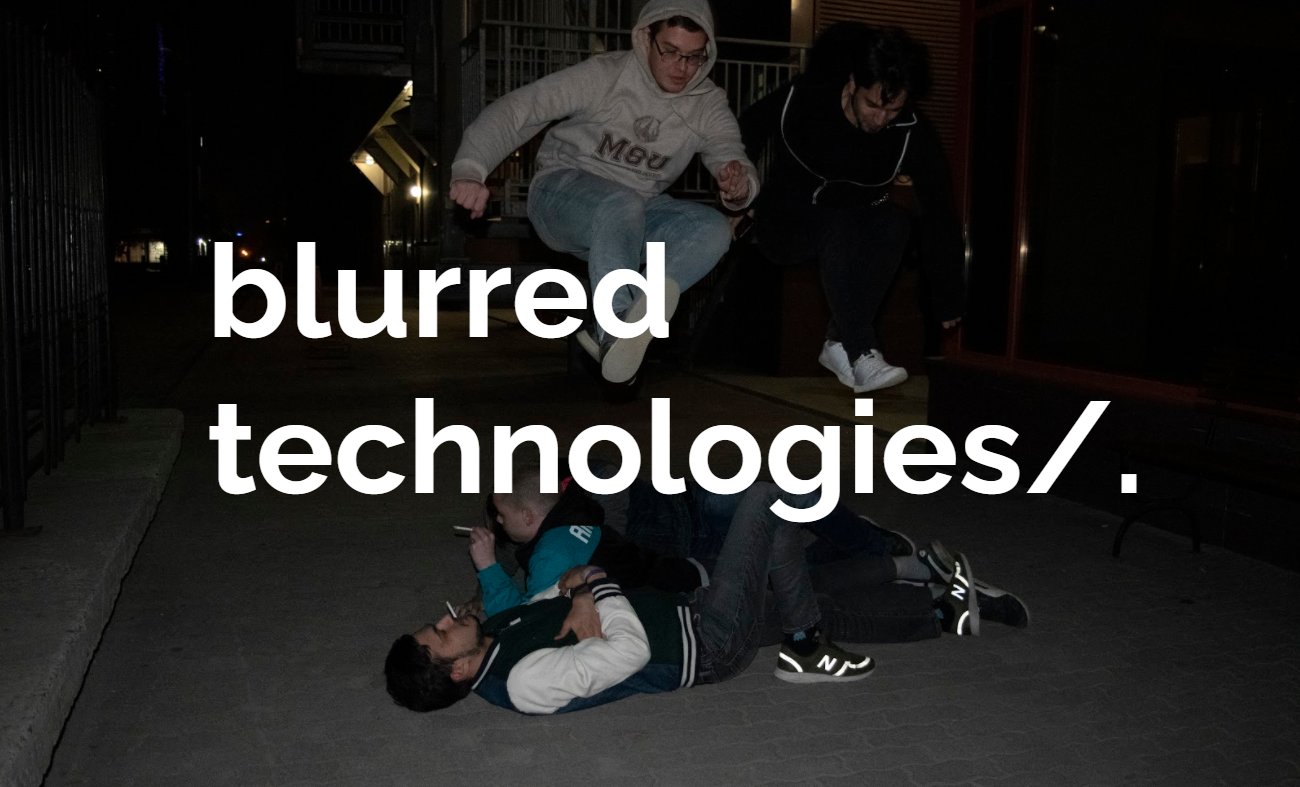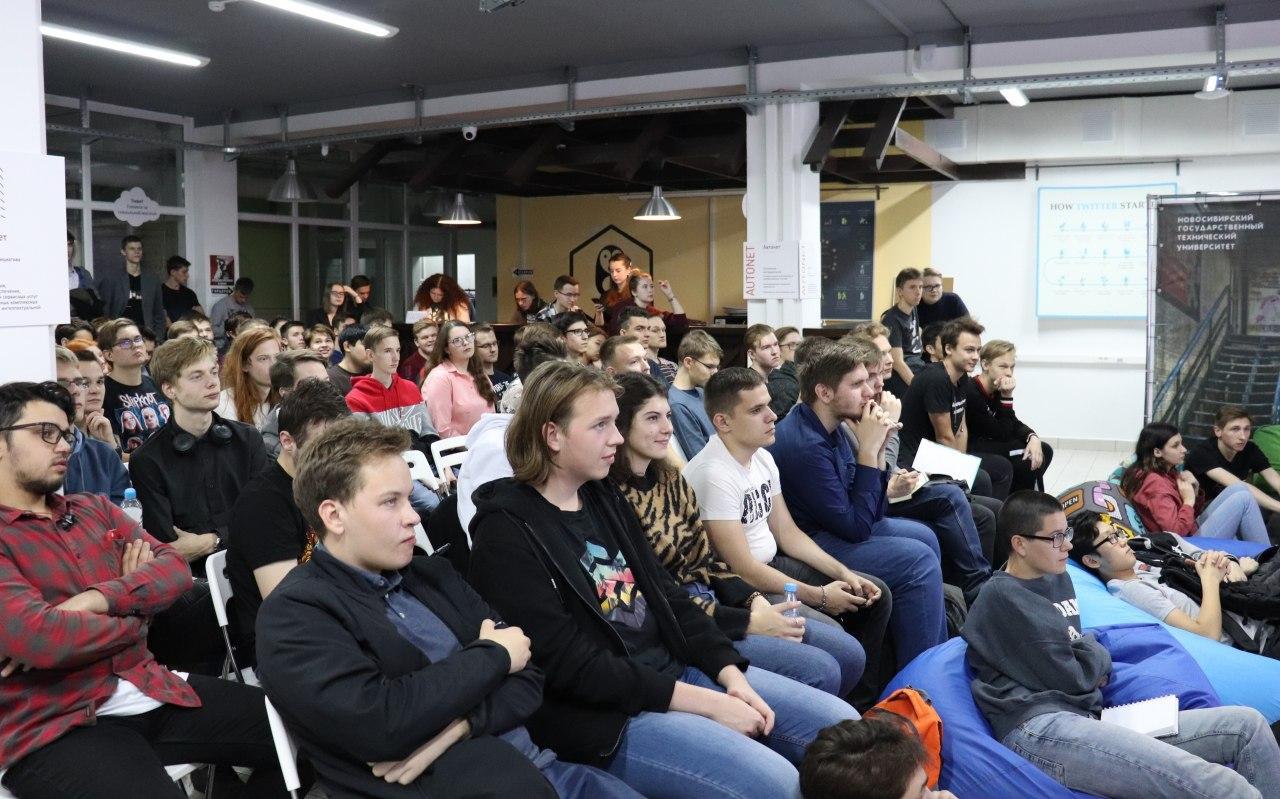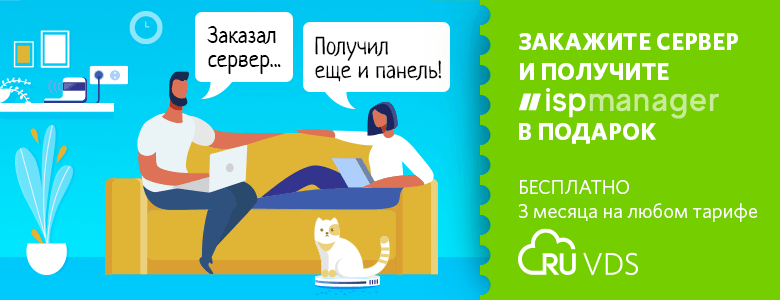
Have you noticed, if you say the word “university” to a person, how he immediately plunges into stuffy memories? There he spent his youth on useless objects. There he received outdated knowledge, and there lived teachers who had long merged with textbooks, but did not understand anything in the modern IT industry.
To hell with it: diplomas are not important, and universities are not needed. So you all say? I think about it every day, and, you know, I don't agree with that! It's worth going to university. There are guys and girls with burning eyes like you, there is a community there. And together you can do a lot of new things. For example, an alternative to the educational program of the university in your city.
I saw my first computer when I was 6 years old and something clicked in my head. Even then I realized that the computer is exactly what I will occupy my life with. The piece of iron struck me a lot, but I still had no idea how obedient it was. It turned out that all the programs for it do not come from the computer manufacturer and do not appear by magic. They are written by specially trained people - programmers. Then I decided: damn it, I want to become one of them.
But first, I became that no-name that spam in the VK comments with proposals to make a website. There were no more daring customers, but I came across one web studio and got my first test one.
Alas, I couldn’t retype the psd template (“my little baby, it’s too late, leave from behind the computer”). I didn’t despair and posted my code on my WordPress blog. Once my free hosting hacked everything that was on the blog. I started restoring the backup, and locally brought Wordpress to the point of SQL-Injection.
Having thereby discovered the world of security for myself, I went into a free search for vulnerabilities. Hacked the bookstore (Krovostok played), the director paid me for a vulnerability in which I could view other people's orders. When I identified an XSS vulnerability on the website of an online home appliance store, I was even asked to send a resume. Upon learning that I was 15, the operator left the chat.
And here you are, in a torn plaid shirt, with a guitar in your hands, on the morning after graduation near some panel. You wander home, from time to time making a pass to nowhere, stones meeting under your feet. And it's time for you to make informed decisions that will definitely take away a fucking cloud of time from you, but whether it will be useful is unknown.
But I applied and was enrolled in the university.
Having entered the first year, I decided not to burden myself with unnecessary acquaintances. And on the very first day he broke his rule. I met a guy who was thinking about one thing: he would definitely beat off a couple of girls from me. He was so cool. Ancient wisdom says: the enemy must be kept closer than friends.
Serega knew almost all applicants by name, communicated with a bunch of people from all over the stream, and most importantly, he knew how to recognize good bars. Actually on this we agreed.
I didn't expect to find a like-minded person right away, especially since he would study with me in a group. Seryoga told a lot of incredible things. At school, he went to Samsung events, where he did mobile development projects, and at the school itself, they were good with programming. It sounded painful to me. My school was different. Somehow I decided to find any book about programming in my hometown, and found nothing but Talmuds about long-extinct languages, the existence of which I still doubt.
In the end, I hooked up with a talented mobile developer, and we started cutting all sorts of different things together. Immediately more guys were hunted to their team. They called themselves Blurred Technologies with pathos - since the age of 16 I dreamed of my own company with that name.
I don't know if you have read my twitter, but what has not happened in my new student life. We hacked furiously. All city IT-events were furred with a ringing head - either from a hangover, or from lack of sleep. Once we wrote a chatbot with speech recognition for RosAtom's IT daughter. They did without fashionable machine and neural network training. We taught this infection for 5 hours with all twitter. For a beer we came up with our own IDE for Python with a scandalous name - CreamPy. And for the competition for the funniest photo at the hackathon (where the prize was a couple of bottles of whiskey), they made such a funny photo that it was rejected by orgies as obscene and the competition was completely canceled - I fell asleep on a chair with a whitefish in my teeth, an energy drink in my hand and my head thrown back ... University my life has never pulsed with such intensity and frequency!
, , , — .
We had some experience in application development and we were good at current technologies in IT. Most of them are not taught at the university, at least in ours, and we did not like that. We wanted the first-timers who had not yet decided to find themselves. The subject "Introduction to Direction" did not help them in this, but in fact turned out to be a retelling of the curriculum with a pack of passive aggression from the teacher. After your attempt to answer the question, he blushed so that it became clear - the man wishes you an electric chair. You quote Knut and Tannenbaum, but he simply calls it nonsense and quotes from a book by a now deceased colleague from the pulpit. With all due respect, what did this book do for programming? Do you know what “overhead” is? Me not.
So we decided to do our "introduction to direction" with Munchkin and the copywriters. The first thing we did was thoroughly stir up student groups in social networks with our polls. Most of the feedback came from first and second year students. From the answers, it became clear that most of them either did not program at all, or poked something at school on computer science (hello, Pascal). And of course, everyone was interested in game development, application development, and, in general, understanding of applied programming.
Another team of talented guys came to us through polls. Without hesitation, we stirred up a collaboration with them, coughing up plans for the semester ahead, and the work began to boil.
Colleagues, with whom we decided to give lectures together, sniffed gunpowder in production and decided that everything would be grown-up. Therefore, each report was reviewed by several people, then a detailed rehearsal, and only then received the right to appear in the lecture program. We spent weeks preparing, as if there was a damn presentation of the new iPhone ahead. As a result, we blinded about three reports, somehow found a free audience and finally released!
Wow! The opening was attended by 150 people. We told the students about working with the command line, databases, and how to design and develop mobile and web applications.
We were surrounded by burning eyes, and we began to burn out very quickly - the preparation of each lecture took too much time. There were many problems. We didn't have our own corner. The speakers, students just like us, alternately merged, and our audience more and more caught the apathy before the upcoming session.
And there was such a thing. Do you know people who fall for a fashionable thing, but in fact they are not interested in it, and they just portray social activity? There are such. And I'm still curious, why come to my show and still be on your phone or laptop? Hey, I'm not background music! I put my own efforts into it, spent time, knocked out the line, alarmed people. I didn’t sleep at night. I came to tell you something that may be useful to you. Camon, you yourself came to me, I did not drag you! So what the fuck?
, , . — , , , , , . .
We took an indefinite break. The collaboration fell apart. Me and my sidekick Seryoga began to live a normal student life - we code, drank and fancied. A whole year passed unnoticed. We thought a lot about returning. Hundreds of new fighters entered the faculty, rumors circulated through the faculty that we were up to something - but we weren't up to anything at all.
People asked when new events would start, suggested new ideas in terms of format and themes. Nobody knew our names, nobody knew who we were, but everyone understood that there was Blurred Technologies, and they were again plotting something. We needed a new plan.
Hallelujah, a new site has appeared on campus - the Boiling Point. There one could get a place for lectures with impunity and with minimal effort on almost any day. We firmly decided not to inflate the staff and production anymore, we christened the project Blurred Education (but of course). The material release rate accelerated to three days. In a new iteration, with a new ideology, we began to come out more often and collect much more people than it was at the start. We charged people and learned how to charge from them.
We had a squad of charismatic speakers, a great desire to be useful, hundreds of interested eyes, and a whole sea of interesting topics, technology and enthusiasm, as well as support from GitHub, local IT communities, a shelf with Computer Science classics and a stock of memes so that students do not get bored ... Not that all this was categorically necessary for the organization of educational events, but if you have already begun to criticize education, then you need to take it seriously.
We went all out: we invited the guys from FP Community , HR, bosses from companies. The students did not leave us with questions and ideas.
At one of the lectures, we did not have enough spaced chairs, we placed additional ones, and they also ran out. We got the dusty chairs from the warehouse and only then sat our two hundred people.

We broke our own records, tried to release two events a week. The three of us sawed as many events as other guys participating in the HackClub program never dreamed of. When we sent the first photos and numbers to the guy from the first lineup, he was crazy. It was really cool.
Everyone was shocked from us. At a round table of heads of departments, the dean of our faculty accidentally found out that his third-year students gather more people for their reports than most of the teachers.
And everything was simple: we offered students technologies that can be used now to achieve results, to gain work experience. We showed various areas of IT so that the first timers knew about the existence of the world outside laboratory work in C. We connected to the HackClub program from GitHub, broke through a small funding. Our students got fast access to the GitHub Education Pack ! We have negotiated with the conference organizers for student discounts or conference passes (hello SnowOne).
Now we are making friends with all the universities in the city. We will hold security competitions and hackathons under the auspices of our Blurred Technologies. Finally, we want to invite large corporations to cooperation, and right now we are participating in the Developer Student Clubs program from Google .
For a very long time, we could not find a permanent place of residence for our services. This limited us very much - some services needed a high uptime, others needed a certain configuration. We tried different free plans, including for students. But either they still imposed restrictions on us, or the test period expired, and we wanted to continue further. Then RUVDS offered us their help and allocated computing power to us and our students. It's great. It is really important for us that students can give free rein to their creativity without regard to restrictions.
We have our own view of the entire IT movement in the city. The hackathons we participated in were either idea juicers or hunt companies. We want to conduct educational hackathons, with mentors, pizza and a great mood. We want to highlight the young and talented, and most importantly, help them gain confidence.
I often think of my current director, he is developing. As a student, he and a friend founded a company and made it what they wanted to see at 19. They gathered in the dormitory of the academic campus, sawed various cool things. And now they work with one of the largest corporations in the world and make software for them, which is used by tens of thousands of employees.
It's just that the subjects that are taught at the university do not always have such a coherence that allows you to understand why you should learn it at all. Students day after day torment a whole heap of textbooks, but the connection between the subjects is not always obvious, or is completely absent. Therefore, more often the effect of training is not as superb as it could be. What it should be. And it's not about shitty teachers. There are very cool guys in education (hello, Vitaly Bragilevsky, Denis Moskvin, Evgeny Leonidovich Romanov and Polina Valerievna Mishchenko) - they strongly motivate to study further.

But the most important and standing at the university will always be the community: people who live with you in the same dorm room or study with you in the same group.
Links to Blurred Education:
VKontakte group - vk.com/blur_edu
Interview from the first iteration
Interview from the second iteration
My Twitter - twitter.com/batyshkaLenin
PS Best wishes,batyshkaLenin

